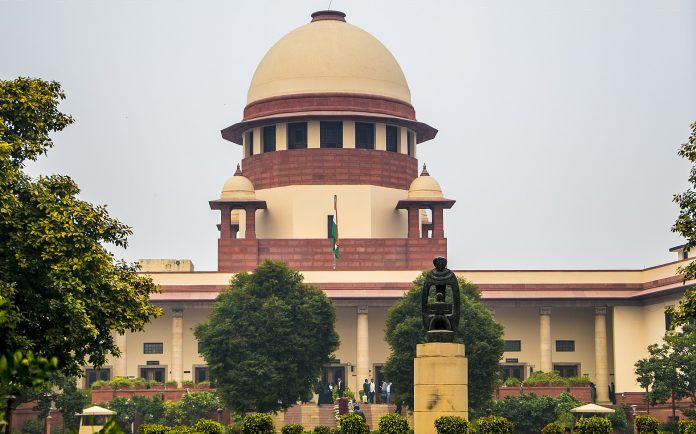– Mohd. Naushad Khan
In a significant development for India’s Muslim community, the Supreme Court’s interim order on the controversial Waqf (Amendment) Act, 2025, has been widely welcomed as a partial victory for justice and constitutional rights. However, legal experts, community leaders, and civil society have cautioned that while the judgment provides much-needed relief, it does not fully resolve deeper structural issues, particularly those surrounding the concept of “Waqf by User.”
Justice Iqbal Ansari, former Chief Justice of Patna High Court, in a detailed conversation with Radiance, underlined the nuanced nature of the Court’s intervention. He described the interim order as a “significant step in the right direction,” though not without its limitations.
Among the most appreciated parts of the ruling was the stay on the clause that restricted the creation of Waqf only to ‘practising Muslims’. The Supreme Court made it clear that both Muslims and non-Muslims can legally create a Waqf, a move that restores the historical and inclusive character of endowments in India.
“This clarification removes the absurdity of trying to monitor someone’s religiosity before accepting a charitable deed,” said Justice Ansari. “It upholds both the spirit of the Waqf tradition and constitutional secularism.”
Equally critical was the rollback of executive overreach, where the amended law had granted district collectors the authority to determine the status of Waqf properties. Justice Ansari noted that such a provision blurred the separation of powers and could open the door to political interference in religious endowments. The Supreme Court’s decision to place such matters under the jurisdiction of Waqf tribunals and courts was, in his words, “a correction of a serious constitutional error.”
The Court also addressed the composition of Waqf Boards and Councils. The amended Act had allowed a majority of non-Muslim members, effectively sidelining Muslims from institutions that manage Islamic endowments. The interim order capped non-Muslim representation to three in the Central Waqf Council and four in State Waqf Boards, ensuring they cannot dominate decisions.
Justice Ansari highlighted the double standards evident in this issue, referencing Justice Khanna’s pointed question during hearings: “Would the government consider appointing Muslims to Hindu temple trusts?” The comparison underlined the selective application of ‘secularism’ and raised important questions about religious autonomy and minority rights.
However, not all concerns were addressed to the community’s satisfaction. One of the most contentious issues i.e. the removal of ‘Waqf by User’ remains unresolved. This legal principle recognises properties used for religious or community purposes as Waqf, even if not formally registered.
Justice Ansari cautioned that the interim order does not reinstate this principle, leaving thousands of properties vulnerable. Instead, the Court directed that disputes over such properties be settled by tribunals or courts, applying the Limitation Act, which allows encroachers to claim ownership if unchallenged for over 12 years.
“This puts historical Waqf lands, many of which are still used for prayer or burial at risk of legal loss,” he explained.
The response from major Muslim organisations reflects cautious optimism. Sadatullah Husaini, President of Jamaat-e-Islami Hind, called the order a “victory for justice, democracy, and constitutional values.” He criticised the government’s attempt to control mosques, graveyards, and community assets as a direct assault on religious freedom.
“Such measures destroy the trust between the government and minorities,” Husaini said. “We hope the government now rethinks its approach and engages with stakeholders before enacting such laws.”
Similarly, All India Muslim Personal Law Board praised the Court’s decision to curb the powers of district collectors, noting that such unchecked authority could have led to “mismanagement, corruption, and encroachment” of community properties. In a statement, the Board emphasised that Waqf is not just a religious institution, but also a key pillar of social services in education, health, and welfare.
Maulana Arshad Madani and Maulana Mahmood Madani of Jamiat Ulama-i-Hind also voiced their perspectives, welcoming parts of the order and expressing dissatisfaction with others.
Maulana Arshad Madani called the stay on key provisions “a significant acknowledgment of Muslim concerns,” but reiterated that the fight is not over. “We will continue our legal and democratic battle until this black law is completely scrapped,” he declared.
Maulana Mahmood Madani focused sharply on the issue of ‘Waqf by User’, calling the Court’s silence on the matter “deeply troubling.” Citing government records, he said over four lakh Waqf properties, including 1.19 lakh mosques and 1.5 lakh graveyards, fall under this category and over 80% remain unregistered.
“If these are not protected, centuries of religious tradition and community service will be lost,” he warned.
In response to the continued legal ambiguity, the AIMPLB has announced a two-month-long nationwide campaign from September 1 to November 30, 2025, to protest against the amended law and mobilise public support. The campaign will leverage religious, social, and political platforms to raise awareness and demand repeal of the law in its entirety.
“The aim is to ensure that the preservation of Waqf properties remains a matter of national integrity and constitutional fidelity,” said AIMPLB.
Justice Ansari believes the Supreme Court’s final ruling may not differ significantly from the interim order, as it already rests on solid constitutional grounds. But he also warned that the future functionality of Waqf Boards and Councils will depend on how the government implements these changes.




